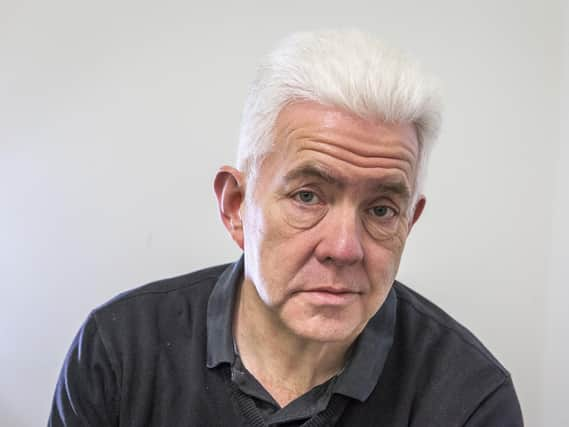What ifs and artistic leaps in the dark - Ian McMillan


Of course I’m not the only person of a certain age muttering those words to themselves at least three times a day because, let’s face it, it’s the human condition.
As the years advance across our faces and minds, we are reminded of our rash decisions and our easy dismissals, our bold statements that turned out to be tripe and our directions of travel that turned out to be dead ends.
Advertisement
Hide AdAdvertisement
Hide AdFor example, in my writing life I’ve always turned away from writing novels because, frankly, they always seemed like really hard work; I decided as a young man that as far as writing goes (and in no other way) I’m a sprinter, not a marathon runner.
In other words, it gave me a day to write a column or a poem, rather than a year chained to my desk creating plots and characters and dialogue.
But what if, decades ago, I had made up my mind to be a novelist and I’d stuck to it? I could have got a shelf-full of best sellers and a pied-a-terre in Sutton-on-Sea. What if, rather than thinking that the intricacies of plot were way beyond my pay grade, I’d got my head down and mastered the craft of the whodunnit?
I could have been the new Val McDermid or Ann Cleeves, with millions following the adventures of my detectives on television. Could have had the Nobel Prize on the mantelpiece, or at least the Crime Writers’ Silver Dagger!
Advertisement
Hide AdAdvertisement
Hide AdIn 2018 I worked with the fantastic Manchester-based composer Michael Betteridge on an opera about the Spanish flu pandemic that swirled across the world in 1918 and 1919, killing millions. I know: sounds familiar, doesn’t it?
I can see that knowing look behind your mask. At the time, though, it felt like a bit of an artistic leap in the dark. There was some funding washing around for projects relating to the end of the First World War and we figured that our subject was unusual enough to attract a bit of interest.
We got a bit of money to do some research and development and that meant we had a day out in Potters Bar at the Government’s Flu Research Centre, although it probably had a more official name than that. We were shown round, in masks and gowns, and almost invisible viruses were pointed out to us in metal cases.
The person who showed us round kept saying, with regards to the next pandemic, “It’s not a case of if, but when” and I have to admit that we only half believed her.
We wrote a few scenes for the opera but the idea fizzled out because nobody seemed to want to fund a piece about a historical pandemic and we moved on to other things. If we’d known then…